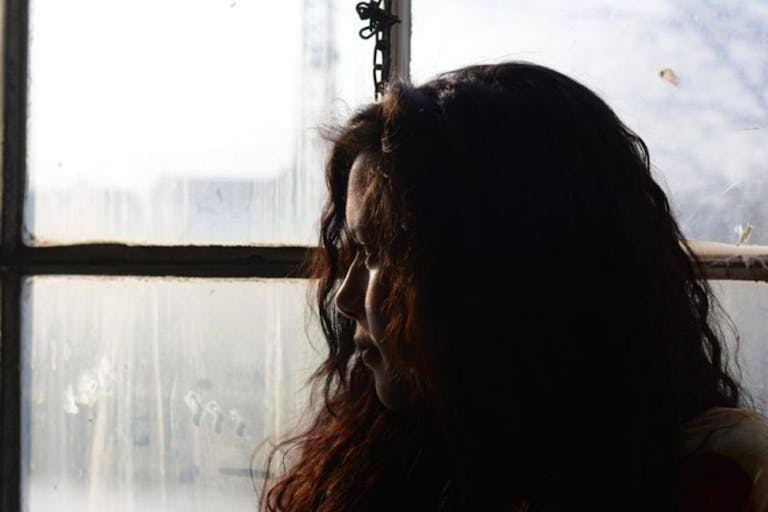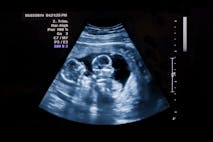
Study: Nearly half of women suffer moderate to high distress after abortion
Michael J. New
·
Woman born from surrogacy opposes it: ‘We’re using wombs, we’re buying children’
Olivia Auriol didn’t know she was conceived through traditional surrogacy until she was 30 years old. Now, she’s fighting against the practice.
Auriol grew up splitting her time between France and the United States as an only child. Her mother was French and was often secretive. CNE News reported that one of Auriol’s first clues that something was off was her baby pictures — or lack thereof. “There were no pictures of my pregnant mother, and I am five days old in the first pictures of me,” she said.
Eventually, when she was a little older, Auriol learned her mother’s age and realized she couldn’t be her biological mother. “I realised that she couldn’t have had me at that age, now thirty years ago,” she said. “Aside from that, there were also physical differences. I look a bit like my father but not at all like my mother. I am tall and blonde, and my mother is short and brown.”
A DNA test through MyHeritage confirmed her suspicions. In traditional surrogacy, the surrogate is also the egg donor and is the biological mother of the baby she is carrying. Auriol eventually found her biological mother, though her birth certificate had been altered to remove her biological mother’s name.
“Swapping birth certificates should be completely illegal when you think of it,” she said. And the knowledge that her parents spent money to have her made it worse. “It was like, Olivia, shut up. Swallow your feelings; they might have spent over 150,000 dollars trying to have you,” she said.

READ: Christian writer expresses regret over choosing IVF: ‘I’m not God and I was playing Him’
“A lot of children born from surrogacy will never know,” she said. “They’ll just have that instinct, or they’ll be a little bit… screwed up. They’ll grow up with mental problems, they’ll grow up with problems, and that’s really sad.”
By speaking out, Auriol’s been able to find some of her biological siblings, whom she calls “the best present [she] could ever have had in her lifetime,” and said that being open about the surrogacy experience has been healing for her. She has begun to focus on fighting against surrogacy, urging people to think of how it affects the child.
“It’s so important to educate people on surrogacy,” she said. “People just think that it’s a beautiful little butterfly world where everything goes right and that love is sufficient and that the child will grow up and everything will be fine, but, no, no. Not everything will be fine. We’re using wombs, we’re paying for women’s uteruses, we’re buying children. There’s nothing right with surrogacy.”
Article continues below
Dear Reader,
In 2026, Live Action is heading straight where the battle is fiercest: college campuses.
We have a bold initiative to establish 100 Live Action campus chapters within the next year, and your partnership will make it a success!
Your support today will help train and equip young leaders, bring Live Action’s educational content into academic environments, host on-campus events and debates, and empower students to challenge the pro-abortion status quo with truth and compassion.
Invest in pro-life grassroots outreach and cultural formation with your TRIPLED year-end gift!
She further explained how traumatic it is for a newborn to be separated from her mother, even if they are not biologically related:
It’s been proved that in the womb, a baby creates a lot of links with its mother throughout the nine month period of time. It hears her voice, it tastes what she’s eating, it feels her emotions. There’s a lot happening in the womb. This link is supposed to last after the birth, and it doesn’t.
The baby, the newborn, that’s going to go out into the real world after birth, has first of all to make that big jump into the real world and it’s cold, it feels awful, and they’re asking the baby to be detached from its mother that nourished him for the last nine months. That is absolutely traumatizing for a newborn. It doesn’t matter that the [baby] is biologically linked to the mother or not. What’s horrible is that this baby is going to have to be separated from the mother that fed him for the last nine months and took care of him for the last nine months and just shot off to another family.
That baby will never understand, and that is a traumatic experience. We underestimate how traumatizing that is.
Research backs Auriol’s claims; the trauma from this separation at birth can last throughout the child’s entire life. Though this research is often related to adoption, as surrogacy is — relatively speaking — a newer trend, the underlying point is the same. Separating a baby from the mother who grew, fed, and nourished him or her for nine months causes trauma.
But unlike adoption, in surrogacy, the child is created with the intention of causing that traumatic separation.
Though many prospective parents feel that their desire for a child and the love they would provide make surrogacy worth the trauma, Auriol says they’re wrong, and that the child’s needs must be put first.
“We’re always, as a child born from surrogacy, going to try to find the other half of ourselves. There’s always going to be trouble – mental problems, problems during adolescence, there’s always going to be some issues because of surrogacy. Love will never be sufficient, unfortunately,” she said.
“I think it’s also really important to remind people what surrogacy is – paying for a womb, paying for a woman’s body, buying a baby, literally buying a human being,” she added. “We’re forgetting what it really is and what it really means. We really need to remind people of this all the time, and if I have to do this every day for the rest of my life, I will be doing it. In the media, people show surrogacy as this perfect thing where everything’s fine and surrogate moms are happy, and surrogate babies are happy, and intended parents are just so, so happy as well, but we forget what surrogacy is at the base.”
Live Action News is pro-life news and commentary from a pro-life perspective.
Contact editor@liveaction.org for questions, corrections, or if you are seeking permission to reprint any Live Action News content.
Guest Articles: To submit a guest article to Live Action News, email editor@liveaction.org with an attached Word document of 800-1000 words. Please also attach any photos relevant to your submission if applicable. If your submission is accepted for publication, you will be notified within three weeks. Guest articles are not compensated (see our Open License Agreement). Thank you for your interest in Live Action News!

Michael J. New
·
Analysis
Cassy Cooke
·
Analysis
Cassy Cooke
·
Analysis
Bridget Sielicki
·
Analysis
Cassy Cooke
·
Analysis
Cassy Cooke
·
Analysis
Cassy Cooke
·
Analysis
Cassy Cooke
·
International
Cassy Cooke
·
Analysis
Cassy Cooke
·
Analysis
Cassy Cooke
·